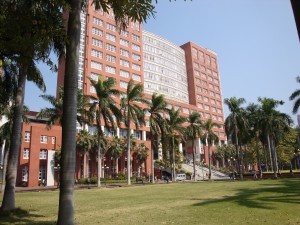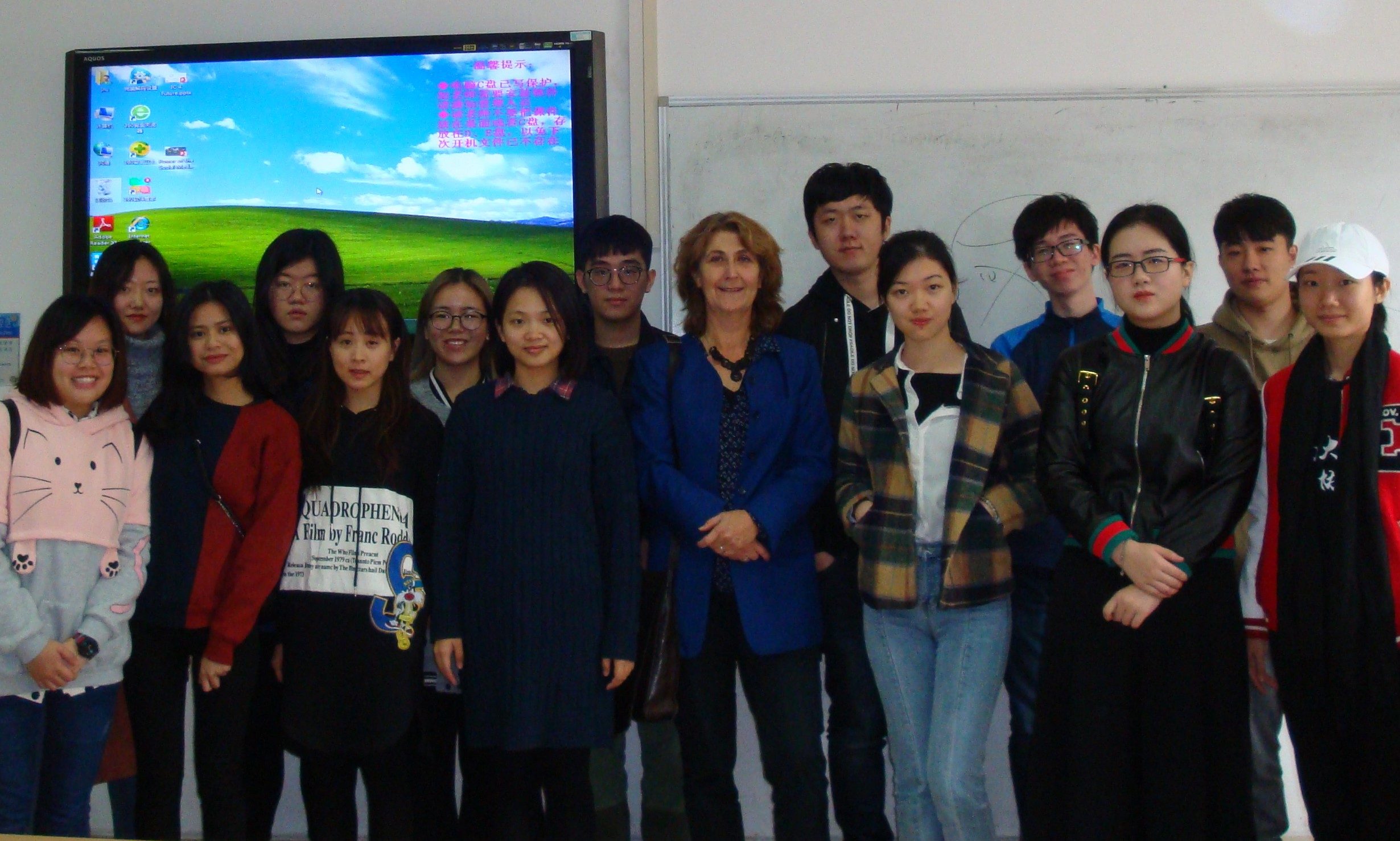Very proud of my International Journalism class at Jinan University in Guangzhou! During November 2017, I gave lectures on culture, communication and media to this class and to MBA students of the JNU Business School. But most of my time I spent teaching an intensive course on International News Comparison and Analysis. The timing was perfect, with a couple of big news events, such as US president Trump visiting China and president Mugabe of Zimbabwe being forced to step down after losing support of the army.
 In class, we did quite a few exercises, looking for all kinds of international and Chinese news reports and videos. As Google is not accessible, we used Baidu (having to click away the annoying advertisements popping up all the time). Evaluating media coverage of Trump’s China visit, we decided to take a look at three international and three Chinese media websites during class. All classrooms have internet access and projection facilities (and, new this year, also cameras). For international websites, we chose the Guardian, BBC and CNN sites, as the New York Times website was blocked.
In class, we did quite a few exercises, looking for all kinds of international and Chinese news reports and videos. As Google is not accessible, we used Baidu (having to click away the annoying advertisements popping up all the time). Evaluating media coverage of Trump’s China visit, we decided to take a look at three international and three Chinese media websites during class. All classrooms have internet access and projection facilities (and, new this year, also cameras). For international websites, we chose the Guardian, BBC and CNN sites, as the New York Times website was blocked.
The opening story of the Guardian was Paradise Papers, an important story, but not interesting for my students who were looking for Trump in China. On the BBC website, the students were surprised by a video showing Chinese people in the streets reacting to the Trump visit, expressing their opinions quite eloquently both in English and Chinese. “It’s tone and message are positive, we thought the BBC was always negative about China,” the students said. Then we turned to CNN. Students concluded that the report, focusing on Xi is laying out the red carpet and seemingly wrapping Trump around his finger, offered the standard American narrative full of suspicion of China’s rise.

 For Chinese media, we turned to CGTN (formerly CCTV), China Daily and Global Times. We were somewhat surprised to find the CGTN site was still in full 19th Party Congress mode, banners and all. China Daily offered unexciting headlines and pictures of the Trump visit, not one story on the homepage looked interesting enough to click on. We glanced at a dossier on the visit, but one possibly interesting story was two weeks old. Global Times had a better choice of pictures and headlines. When I asked what category on the site might be worth looking at, they seemed oblivious of the fact that GT is known internationally for its editorials, whipping up nationalist sentiments.
For Chinese media, we turned to CGTN (formerly CCTV), China Daily and Global Times. We were somewhat surprised to find the CGTN site was still in full 19th Party Congress mode, banners and all. China Daily offered unexciting headlines and pictures of the Trump visit, not one story on the homepage looked interesting enough to click on. We glanced at a dossier on the visit, but one possibly interesting story was two weeks old. Global Times had a better choice of pictures and headlines. When I asked what category on the site might be worth looking at, they seemed oblivious of the fact that GT is known internationally for its editorials, whipping up nationalist sentiments.
At the end of the class, I asked which Trump-in-China story they liked best. Most stories and angles were deemed too predictable and it even proved hard to remember any specifics. But they could easily reproduce the contents of the BBC vox pop. That video story was the clear winner, to their own surprise.
And my personal conclusion? I learn so much about China during these teaching stints, about journalism, but also about developments in Chinese society and politics. And above all about what subjects matter to students, as I asked them to do presentations about forgotten stories they cared about. More on that in my next blog.


Nicely done!